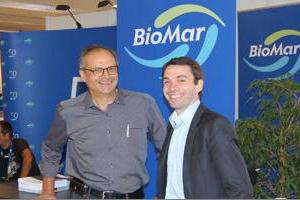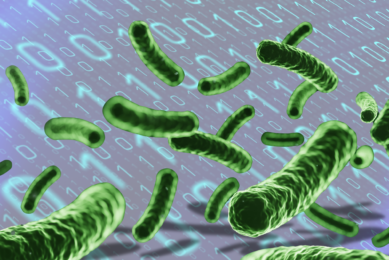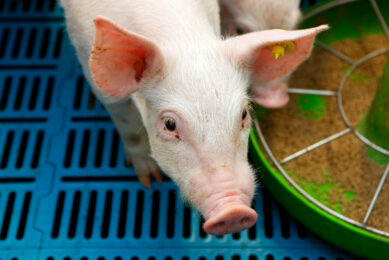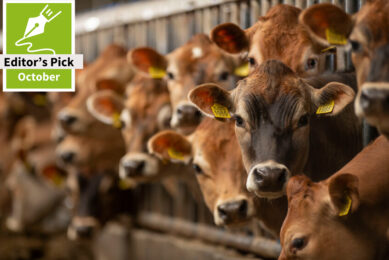BioMar launches fish feed with probiotics

BioMar is introducing the first feed range with a probiotic bacteria approved for use in all aquaculture species in the European Union.
The most significant benefit of the new Larviva products with probiotics will be a reduction in the occurrence of deformities in fish larvae and fry.
Just a few days after the European Food Safety Authority published the approval of the use of the probiotic bacteria strain Pediococcus acidilactici in feed for all aquaculture species, BioMar is now ready with a new product range, Larviva Pro, which will include this revolutionary innovation.
“The effect of this probiotic strain on deformities in fish larvae and fry is now well-documented, and we are very pleased to be the first, who can launch a feed, which will have such a big impact on the production economy in the hatcheries”, says Michel Autin, Technical Director at BioMar.
Larviva ProStart is the first feed in the new product range. It is an agglomerated early weaning diet, which can partly substitute artemia, but equally important it has proved to be the most efficient way to deliver the probiotic bacteria to the gut of the fish.
In the fish gut the probiotic bacteria has a beneficial impact stabilising the gut flora and contributes to the prevention of an inflammation, which has been identified as the cause of the costly spinal deformities.
At the same time the presence of the probiotic bacteria improves mineral uptake in the early life stages and the final result is a higher share of well conformed fish.
P.acidilactici, which is also known under the commercial name Bactocell (Lallemand), is not unknown to hatcheries across the world. Many hatcheries have actually used the same bacterial strain in the rearing water in the production of rotifers and Artemia, primarily to stabilise the culture.
However, when applied in this way only a minor amount of the beneficial bacteria seems to end in the fish gut. With Larviva ProStart it is easier to secure that the larvae receives a sufficient amount of the probiotic bacteria.











